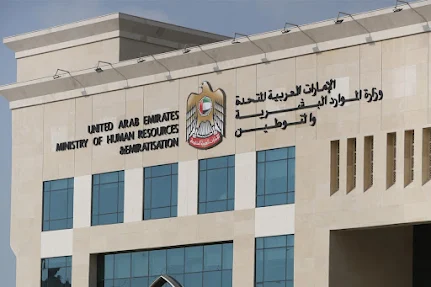Understanding UAE gratuity calculations involves navigating key aspects of the UAE Labour Law, particularly Federal Decree-Law No. 33 of 2021, and subsequent ministerial resolutions. Here's a breakdown of the essential points:
Key Points:
- Basis of Calculation:
- Gratuity is calculated based on the
employee's basic salary, excluding allowances like housing,
transportation, or other benefits.
- Eligibility:
- Generally, an employee must complete at
least one year of continuous service to be eligible for gratuity.
- Service Duration and Calculation:
- The calculation varies based on the
length of service. Key considerations include:
- For service between 1 and 5 years: 21
days' basic salary for each year of service.
- For service exceeding 5 years: 30 days'
basic salary for each additional year of service beyond the initial
five.
- There is a maximum gratuity amount, that
cannot exceed two years worth of the employees basic salary.
Calculation Formula:
- For service of 1 to 5 years: Gratuity = (Basic Salary × 21 days × Years of Service) ÷ 30
- For service exceeding 5 years: Gratuity = (Basic Salary × 30 days × Years of Service) ÷ 30
- For service of 1 to 5 years: Gratuity = (Basic Salary × 21 days × Years of Service) ÷ 30
- Contract Types:
- While distinctions between limited and
unlimited contracts existed, the new labour law has streamlined
contracts, but the manner in which resignations affect the calculation
can still vary.
- Resignation vs. Termination:
- How the employment relationship ends
(resignation or termination) can affect the gratuity amount, particularly
in cases of resignation with shorter service periods.
- The Savings Scheme:
- It is important to note that there is now
an alternative end-of-service benefits system, called the savings scheme.
This is an optional alternative. Where employers can subscribe to
investment funds for their employee's end-of-service benefits. This is a new
development within the UAE labor law.
- Relevant Legislation:
- Federal Decree-Law No. 33 of 2021
Regarding the Regulation of Labour Relations.
- Cabinet Resolution No. 96 of 2023
Regarding an Alternative End of Service Benefits System.
- Cabinet Resolution No. 1 of 2022 on the
Implementation of the Regulation of Federal Decree-Law No. 33 of 2021
Regarding the Regulation of Labour Relations.
Important Considerations:
- It's crucial to refer to the latest
official sources for the most accurate and up-to-date information, as
labor laws can be subject to change.
- Consulting with legal professionals or HR
experts in the UAE is recommended for specific cases or complex
calculations.
I hope this information is
helpful.
new gratuvity payment system
in dubai
It's important to understand
that while the core principles of UAE gratuity remain, there's a significant
development with the introduction of an alternative end-of-service benefits
system, often referred to as the "savings scheme." Here's a breakdown:
Traditional Gratuity:
- This system, based on the UAE Labour Law,
calculates gratuity based on an employee's basic salary and years of
service.
- It involves lump-sum payments upon the end
of an employee's service.
- This system is still in place.
The New Savings Scheme:
- This is an alternative end-of-service
benefits system. It's not a complete replacement of the traditional
gratuity, but an optional alternative.
- It involves employers contributing to
investment funds on behalf of their employees.
- The employee's end-of-service benefits
then depend on the performance of these investments.
- Key aspects of this scheme include:
- Employers make monthly contributions to
investment funds.
- Employees can also make voluntary
contributions.
- The final payout to the employee includes
the employer's contributions and any investment returns.
- This is regulated by Cabinet Resolution
No. 96 of 2023.
- This system is designed to provide greater
financial security for employees.
Key Considerations:
- The savings scheme is an optional
alternative for employers.
- The traditional gratuity system remains in
place.
- It is important to understand the details
of each system to make informed decisions.
- It is always best to refer to the official
sources from the UAE government, such as the Ministry of Human Resources
and Emiratisation (MoHRE), for the most accurate and up-to-date
information.
In essence, Dubai, and the
wider UAE, have introduced a new, investment-based option for end-of-service
benefits, giving employers and employees more flexibility.
#UAELabourLaw #UAEGratuity #EndofServiceBenefits #UAEEOSB #UAESavingsScheme #GratuityCalculation #MoHRE #EmploymentRightsUAE #FederalDecreeLaw33 #UAESavingsPlan #EmployeeInvestmentUAE #CabinetResolution96 #AlternativeEOSB #UAEJobs #WorkingInUAE #DubaiJobs #UAEBusiness #UAELegal #UAERules #Dubai #UAE #UAEGuide #ExpatUAE #LearnUAE #UAEFinance"









